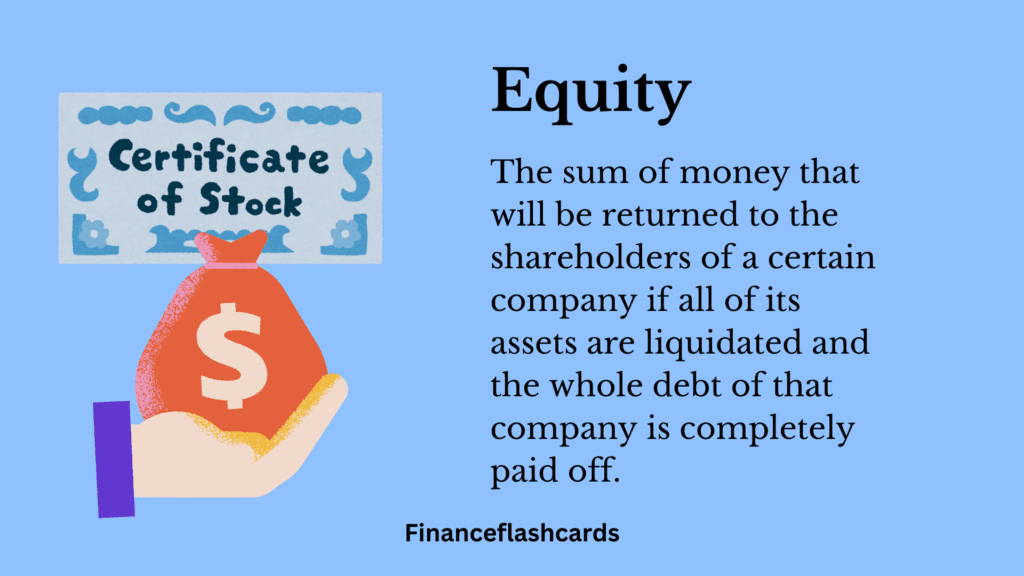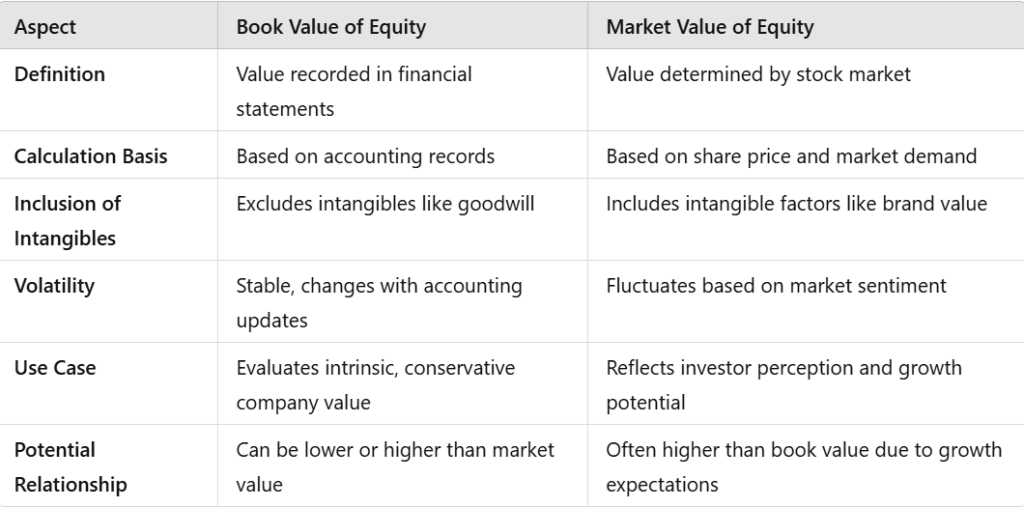Equity, referred to as shareholders’ equity represents the ownership interest held by shareholders in a company. It represents the amount of money that would be returned to a company’s shareholders if all of the assets were liquidated and all of the company’s debt was paid off in the case of liquidation
Table of Contents
What Is Equity?
Equity is the value of what you truly own in something after subtracting any debts or money you owe.
Equity, which is often called shareholder equity, is regarded as the sum of money that will be returned to the shareholders of a certain company if all of its assets are liquidated and the whole debt of that company is completely paid off.

Formula And Calculation
Equity is a key measure of financial health, both for businesses and individuals. In a company, it shows how much of the business truly belongs to the owners or shareholders after all debts are paid.
For investors, equity represents their stake in the company and determines their share of the profits and assets.
Equity can be calculated using the formula:
Equity=Total Assets−Total Liabilities
- Total Assets: The total value of everything a company or individual owns (e.g., cash, investments, property, inventory).
- Total Liabilities: The total amount of money owed to others (e.g., loans, debts, payables).
Example
Imagine a company has the following financial details:
- Total Assets: $500,000
- Total Liabilities: $300,000
Using the formula:
Equity=500,000−300,000=200,000
This means the equity in the company is $200,000, which represents the owners’ or shareholders’ value in the business.
Book Value vs. Market Value of Equity
When evaluating a company’s equity, Book Value of Equity and Market Value of Equity are two critical concepts, but they represent different perspectives on the company’s worth. While the book value reflects the value recorded in financial statements, the market value represents how the stock market perceives the company.
Book Value of Equity
The Book Value of Equity is the value of a company’s assets minus its liabilities, as recorded in the company’s financial statements. It is derived from historical data and reflects the net worth of the business based on its tangible assets. Essentially, the book value represents the residual value available to shareholders if the company were to liquidate all its assets and pay off all its debts. It can be calculated using the formula:
Book Value of Equity=Total Assets−Total Liabilities
For instance, if a company has total assets worth $1 million and liabilities of $700,000, the book value of its equity would be $300,000.
Market Value of Equity
On the other hand, the Market Value of Equity, also known as market capitalization, reflects the value that investors place on a company in the stock market. It is calculated by multiplying the current share price by the total number of outstanding shares:
Market Value of Equity= Current Share Price×Number of Outstanding Shares
For example, if a company’s stock price is $50 and there are 10 million shares outstanding, the market value of its equity would be $500 million.
Unlike book value, market value is dynamic and can fluctuate significantly based on market conditions, investor sentiment, and expectations about the company’s future performance.
Key Differences

Other Forms of Equity
- Private equity involves investments in private companies, usually through venture capital or buyouts. It focuses on growing businesses and selling them for a profit.
- Common equity refers to ownership in a company through common stock. It gives shareholders voting rights and the potential to earn dividends or benefit from stock price growth.
- Preferred equity gives investors priority for dividends and payments in case of liquidation. It offers fixed returns but usually no voting rights in the company.
- Home equity is the value of a homeowner’s interest in their property, calculated by subtracting the mortgage balance from the home’s market value.
Key Takeaways

